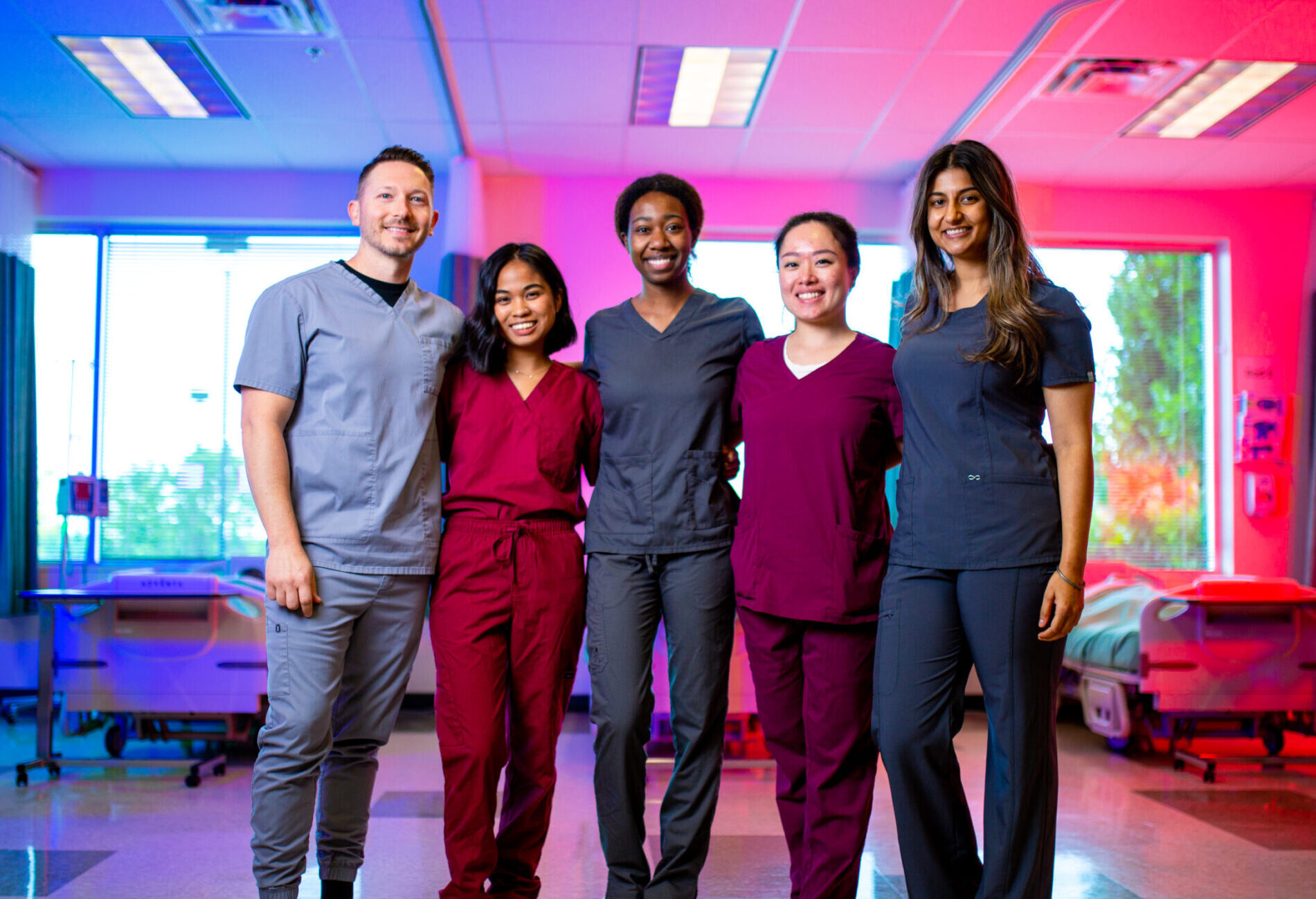Diversity and Inclusion

Roseman University of Health Sciences believes that many of the greatest ideas and discoveries come from a diverse mix of minds, backgrounds and experiences, and we are committed to cultivating an inclusive and equitable work and learning environment. Roseman University’s focus is intentional and designed to build a sense of true belonging, creating a place where there is mutual appreciation for our unique backgrounds.
Roseman Student Organizations
Roseman University’s vibrant campus culture allows students, faculty and staff to learn and work in an atmosphere where they can grow both professionally and personally. Students have the opportunity to become active members and leaders of dozens of student organizations, allowing them to meet and foster lifelong colleagues through collaborative learning, community service and advocacy. Roseman’s clubs allow students to discover new passions, meet other students with similar backgrounds and interests, and to expand their perspectives and cultural literacy.
Faculty Diversity
As student populations more accurately reflect the populations that we serve and become more diverse, diversity among faculty and staff is also of vital importance. Faculty, Administration, and Staff of Roseman University are broadly diverse with almost 40% of total employees belonging to historically underrepresented groups.
Building Diverse Pipelines
Roseman’s pipeline efforts, including its ASPIRE program, is building critical pathways to enable, inspire and educate the next generation of healthcare providers by connecting with diverse and underrepresented middle and high school students, to increase the diversity of the healthcare workforce by exposing these students to learning opportunities and support.
Medical Missions
Critical to learning and developing cultural competency is working within diverse communities of need locally, regionally, and globally. Roseman students embark on numerous medical missions around the world, serving at-risk populations in need of primary care. These missions offer students an unparalleled global view of public health issues, alternative healthcare systems, and insight and experience with diverse populations that build empathy, compassion, and cultural competencies.
Serving at Home
Roseman students also are provided numerous opportunities to serve their local communities through events, service, and donation of care to underserved populations. These experiences provide valuable insight to faculty and students alike on the importance of understanding diversity, cultural sensitivity, and varying socioeconomic differences when providing sensitive, culturally competent healthcare.
Diversity, Equity & Inclusion Advisory Council
Roseman’s DIAC was created in 2020 with the following objectives:
- Promote and maintain a welcoming and respectful community atmosphere at Roseman that visibly encourages understanding and integrity.
- Provide resources and support to facilitate and enable faculty, staff, and students to pursue and execute curricula, research, and outreach activities that reflect multicultural perspectives and that promote appreciation of the values of diversity.
- Review and make recommendations regarding the availability, dissemination, and awareness of equitable workplace and educational policies and processes.
- Support efforts to recruit and retain a diverse student body and a diverse faculty and staff.
- Design university-wide programs, events, and initiatives to increase awareness, inspire action, and support a culture of diversity within the Roseman Community.
- Community Atmosphere (Climate)
- Education
- Marketing and Outreach
- Special Programming
- Marife Aczon-Armstrong (Sits on Education, Marketing & Outreach and Special Programming DIAC Working Groups)
- Cheryl Brewster (Sits on Community Atmosphere, Marketing & Outreach and Special Programming DIAC Working Groups)
- Allison Bouska
- Yvette Calunsod
- Chante Coleman (Sits on Community Atmosphere, Education and Special Programming DIAC Working Groups)
- Erik Dillon (Sits on Education DIAC Working Group)
- Brianna Fernandez
- Catherine Garcia (Sits on Education and Marketing & Outreach DIAC Working Groups)
- William Harman
- Sonia Jones (Sits on Community Atmosphere and Special Programming DIAC Working Groups)
- Andin Josipovic
- Lois Kim
- Lauren Lee
- Yodit Mesmer
- Justin Miles (Alumni 2007)
- Juliana Morone (Sits on Community Atmosphere DIAC Working Group)
- Shika Narayan
- Susan Nguyen (Sits on Education and Community Atmosphere DIAC Working Groups)
- Vincent-Ray Tejada
- Connor Schwartz (Sits on Community Atmosphere DIAC Working Group)
- Rachael Thomas (Sits on Marketing & Outreach DIAC Working Group)
- Rhonda Woodruff (Sits on Community Atmosphere and Special Programming DIAC Working Groups)
The primary function of the DIAC is to collaborate to develop university-wide initiatives that focus on matters related to diversity, equity and inclusion.
- DIAC members will serve a two-year term, except for students who will be appointed to serve one-year. Members can elect to serve an additional year if a replacement from their unit is not available.
- DIAC members are appointed by their unit/department/college head.
- It is expected that DIAC members will volunteer for, and willingly accept assignments, and complete them thoroughly and on time.
- DAC members are expected make a commitment to participate actively in the committee’s work, including substantive participation in committee meetings and discussions. Members stay informed about committee matters, prepare themselves well for meetings, and review and comment on minutes and reports
- DIAC is expected to conduct an annual assessment of the years’ accomplishments and provide a detailed year-end report inclusive of a contribution and expenditures report to the Roseman University Admin Council within two months of the budget year end.
- All DIAC members will receive a letter from Roseman University of Health Sciences President, Dr. Renee Coffman, for their participation on the DIAC.
Contact
For questions regarding DIAC please email diversitycouncil@roseman.edu.
Inquiry Form
If you are a Roseman University student or employee interested in becoming a part of the solution, please click the button below to fill out the inquiry form!